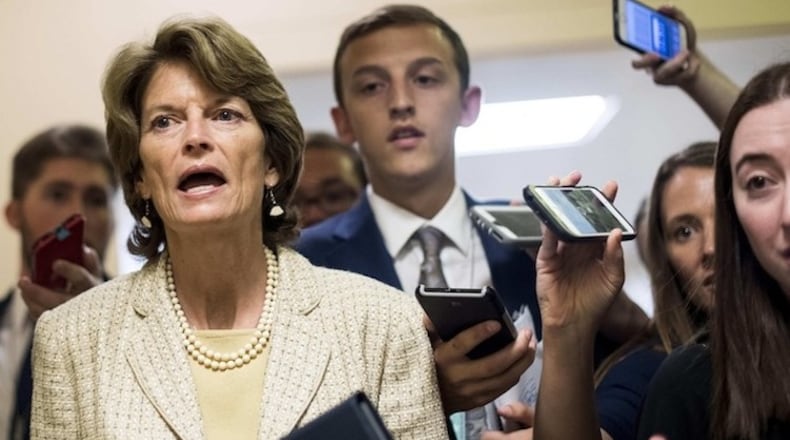The biggest lie in politics over the past several years has been that the Republican Party is a band of blinkered zealots who mulishly pursue an ideological agenda. If you didn't see that before the failed vote on even a slimmed-down version of Obamacare repeal early Friday morning, you should now.
There is a Republican perspective on how to right the wrongs of Obamacare (not to be confused with "fixing" health care, since unwinding the policies that made the health-insurance marketplace worse is merely a first step toward solving the problems that predated that law; you might call them the market's pre-existing conditions). It includes: incentivizing, but not forcing, people to buy health insurance; allowing people to buy plans that actually function like insurance rather than prepaid health care (and slowly encouraging more people to do so); leveling the tax treatment of health insurance between those who buy their plans through their employers and those who don't; weaning able-bodied people off a safety-net program intended for those who truly can't take care of themselves; and accomplishing most of these things by placing more authority closer to the people, in state governments that can more easily attempt innovations that yield real progress.
The problem in the Senate, which has been evident for weeks now, is there are Republicans who only want to vote for certain of those elements. Set aside any frustration you might have with John McCain; he was correct that "skinny" repeal didn't really fulfill the promise Republicans had made to voters, even if it's unclear which "real" repeal he thinks could actually pass the Senate. And at least Susan Collins didn't vote for full repeal in 2015 before turning tail and refusing to do so now, when there's a president who would actually sign such a bill. She might not have a logical stance that also fits with what her party has promised to do, but hey: She's consistent in that incoherence.
No, the problem is better laid at the feet of those senators whose hesitation, when given the chance to fulfill their campaign promises, led to the creation of the "skinny" bill in the first place. And in this case, it's not the usual, most ideological, suspects. Senate leadership bent a lot further in the direction of moderates such as Lisa Murkowski and Dean Heller, without securing their support for a more robust bill. Instead, even the slight movement toward Ted Cruz and Mike Lee, in the form of an amendment to allow a wider variety of insurance plans, caused the moderates to balk. With Collins an apparent "no" on anything, and ditto for Rand Paul when it comes to anything that might actually pass (is it really "principled" to be only for things you know are impossible, eliminating the chance to improve matters at all?), some give and take was required between the other conservatives and moderates. It wasn't the more ideologically conservative Republicans, in this case, who were unwilling to give at all.
Let us also face a real fact: President Trump deserves blame here. It is not just that his only policy goal here has been nothing more than signing "a bill," any bill, with nary a hand in the hard work of shaping said bill. No, that might be workable if he had been willing to use his bully pulpit to drum up public support for what senators were trying to put together on their own, and public pressure on the holdouts. Instead, what have we gotten from this White House during this crucial week?
- Attacks on the attorney general for (properly) recusing himself from an investigation into Russian interference in the election, leading several Republican senators to line up against the president.
- An out-of-the-blue, vague announcement of a policy change regarding transgender persons in the military, disavowed by key Republican senators and seemingly halted by the chairman of the joint chiefs of staff.
- A ham-handed threat to Murkowkski, delivered by Interior Secretary Ryan Zinke, that backfired when the senator delayed a confirmation hearing for some of Zinke's deputies and pointed out she controls his department's budget.
- And, just as a bonus, a profane attack on Reince Priebus and Steve Bannon by the new (irony alert) communications director in a perhaps unintentionally on-the-record conversation with a reporter.
To sum up: At the most crucial hour, this administration has given senators no policy direction but lots of unnecessary distraction and annoyance.
But hey, at least we have Sen. Kid Rock, R-Michigan, coming in the cavalry.
About the Author
The Latest
Featured



